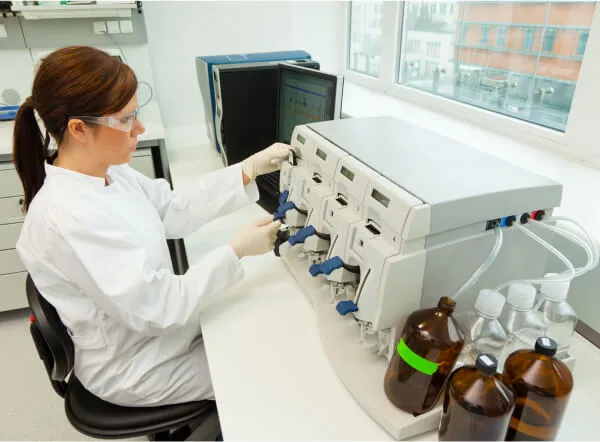Toxicology and Pharmacology

Learn about pharmacology and toxicology and how they are related. Explore work duties, education requirements, job growth and salary information for careers in these fields.
<h2 id="section---AreToxicologyAndPharmacologyForMe">Are Toxicology and Pharmacology for Me?</h2>
<h3 id="section---CareerSummary">Career Summary</h3>
<p><a class="external" href="https://learn.org/directory/category/Biological_Sciences/Toxicology_and_Pharmacology/Toxicology.html">Toxicology</a> and pharmacology are interdisciplinary studies in the field of biomedical science. Toxicology deals with the study of adverse biological responses to chemicals and biological agents on living organisms. Pharmacology is the study of the action of drugs on biological systems with an eye toward researching and developing therapeutic treatments for disease and infection.
</p>
<h3 id="section---JobsAndSpecializations">Jobs and Specializations</h3>
<p>Both toxicologists and <a class="external" href="https://learn.org/articles/What_is_a_Pharmacologist.html">pharmacologists</a> are medical scientists, though some who administer drugs in research trials must be trained medical doctors as well. Traditional career paths include working in the pharmaceutical and biotech industries. Many toxicologists work for the government in state and federal agencies that are concerned with protecting the population from harmful chemicals and drugs in the <a class="external" href="https://learn.org/directory/category/Biological_Sciences/Toxicology_and_Pharmacology/Environmental_Toxicology.html">environment</a>.
</p>
<p>Some <a class="external" href="https://learn.org/articles/Pharmacologist_Jobs_Frequently_Asked_Questions.html">pharmacologists</a> specialize in developing drugs for a particular illness. For example, a <a class="external" href="https://learn.org/articles/Psychopharmacology_Schools_Answers_to_Your_Questions.html">psychopharmacologist</a> concentrates on drugs specifically for the mentally ill. Some toxicologists also specialize, like <a class="external" href="https://learn.org/articles/Forensic_Toxicologist_Jobs_Frequently_Asked_Questions.html">forensic toxicologists</a>, who help with police investigations by performing lab tests on evidence collected at the scene of a crime.
</p>
<h3 id="section---EmploymentOutlookAndSalaryStatistics">Employment Outlook and Salary Statistics</h3>
<p>In March of 2014, <i>Payscale.com</i> reported that most toxicologists earned an annual salary between $44,585 and $123,243, while most pharmacologists received an annual salary between $45,958 and $128,008. The U.S. Bureau of Labor Statistics (BLS) reported that employment for medical scientists, which includes toxicologists and pharmacologists, was expected to grow 13% in the decade between 2012 and 2022, which is about as fast as the average for all job sectors (<i>www.bls.gov</i>). The best employment options will likely go to those who hold doctoral degrees.
</p>
<h2 id="section---HowCanIBecomeAPharmacologistOrToxicologist">How Can I Become a Pharmacologist or Toxicologist?</h2>
<h3 id="section---EducationRequirements">Education Requirements</h3>
<p>If you're interested in becoming a <a class="external" href="https://learn.org/articles/What_are_the_Core_Courses_of_a_Distance_Learning_Program_in_Toxicology.html">toxicologist</a> or pharmacologist you will need to obtain at least a bachelor's degree, which can lead to an entry-level position in biochemistry research or <a class="external" href="https://learn.org/articles/How_Do_I_Become_a_Pharmaceutical_Sales_Representative.html">pharmacology sales</a>. However, you will likely need a <a class="external" href="https://learn.org/articles/Pharmacology_School_and_Degree_FAQs.html">master's degree in pharmacology</a> or a doctoral degree if you intend to pursue a research or academic position. You can expect the degree programs in these specialties to be rigorous, with courses in toxicology and pharmacology research, biochemistry, molecular biology, genetics and mathematics.</p>


.svg)